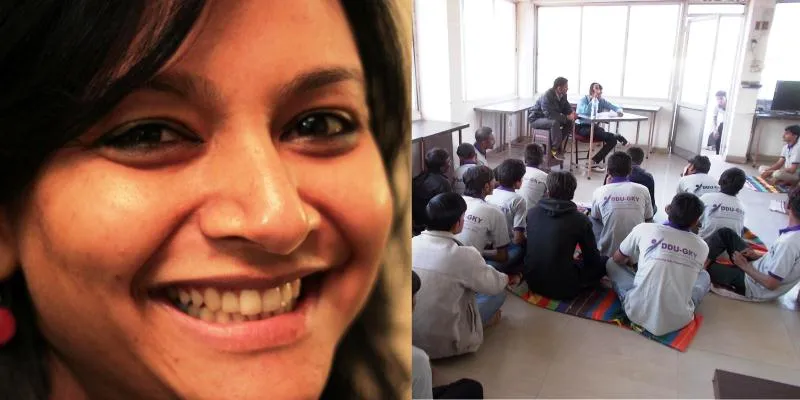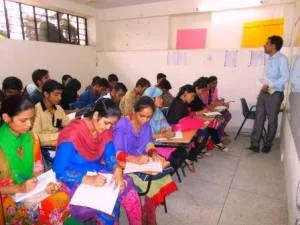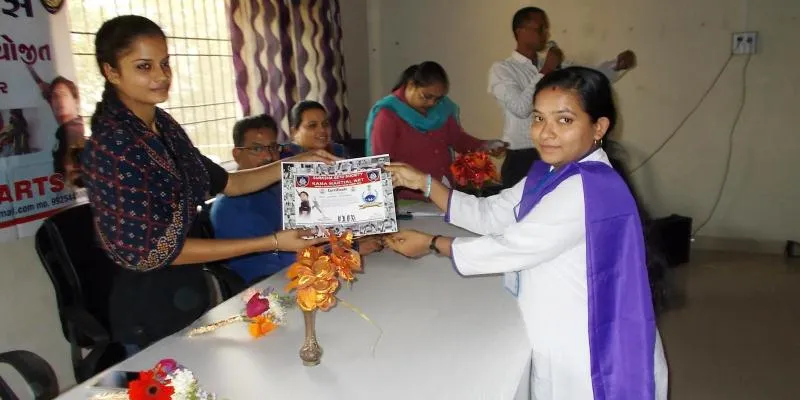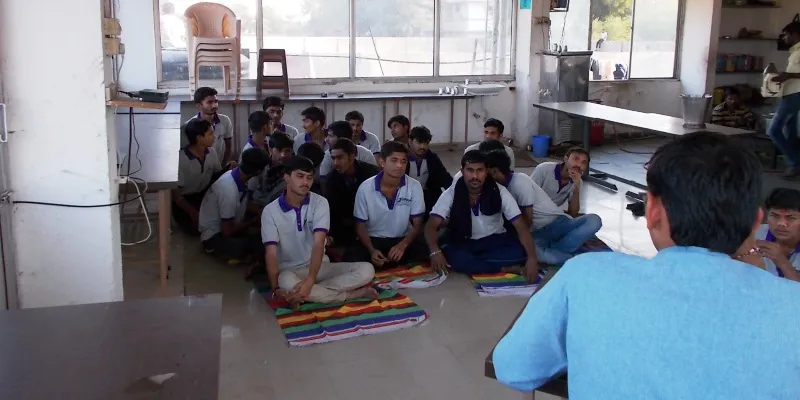This architect’s mission to skill India has helped 3,400 youngsters from slums and villages get placed
UpSkill provides underprivileged youth easy access to employment linked vocational training. Besides, the organisation has also been designing innovative training and placement models.

Just two percent of India’s workforce is skilled compared to 68 percent in the UK, 74 percent in Germany, 80 percent in Japan, and 96 percent in South Korea. In India, the institutional set up for skills, over the years, have been engineering colleges or industrial training institutes. However, these institutions have little focus on imparting skills other than those required for the job of an electrician or a fitter.
There is certainly a need for a skilled workforce in the country. That is the reason why the central government has established a separate ministry entrusted with the task to create a resource pool of 500 million skilled workers by 2022. However, the government cannot achieve this task on its own. It needs the contribution from a lot of institutes and organisations in developing this new skill ecosystem.

One such organisation is UpSkill. An idea born out of a classroom in a management school, is today benefitting thousands of people in preparing them for the job market.
It was Apar Kasliwal and his friends, graduates from Kellogg School of Management, who conceptualised an impact-driven social enterprise to bridge India’s skilled manpower gap. The idea was brought to reality by his wife Mansi Agarwal, an architect by profession.
UpSkill’s mission is to not only to provide jobs through skilling but also to contribute to an individual’s career through a continuum of opportunities and growth, says Mansi.

While on maternity leave, Mansi decided to contribute to the project. In 2014, she took up the work full-time and now leads a team of 32 people.
“We found that the need of employing skilled manpower was not only important for economic growth, but also for ensuring that the youth don’t take the path of violence and crime,” she says.
The initial funding came from the prize money won in several international business competitions. The couple also raised money through crowdfunding. After the success of the pilot, they started working on both government and private sector funded projects. The organisation also won awards for their contribution to the social sector. One of its centre in Surat was awarded by the Ministry of Rural Development for the best residential training centre in 2015.
“So far we have not actively tried to raise funds. We were fortunate to be invited to be a part of the Upaya Social Ventures 2017 cohort which we won and, therefore, have a funding commitment from them. Other than that, we have been a bootstrapped startup,” says Mansi.

UpSkill has two primary business verticals. The first one includes training centres that are operated under various government and CSR funded projects, and a few that run on fee-based training programmes.
Second is UpSkill’s technology platform NODE, which is a SAAS-based software. NODE captures data at all steps — from education to employment, from recruiting trainees to placement to career advancement. It also has content for digital training. This platform is used by trainers, organisations who wish to use their CSR fund on skill training, and industries who wish to hire skilled workforce.

UpSkill has been designing innovative training and placement models for the youth by using technological interventions. Mansi says the purpose of the organisation is to build an education system that is practical and directly links to the demand of the industry:
“UpSkill is designed to provide underprivileged youth easy access to employment linked vocational training. We have evolved by creating a deep impact at the grassroots levels. This has been made possible by working with different ministries such as Ministry of Minority Affairs and Ministry of Rural Development in setting up residential and non-residential vocational training centres across Gujarat and Rajasthan.”

UpSkill mainly trains people in retail and automobile, who are largely youth from economically weaker section in rural and urban areas with little or no formal education. “Most of our students have not cleared their High School exams. Some have been educated just till Class V. We train them for entry-level jobs. We have also trained sewing machine operators, electricians, beauty therapists, and office assistants,” she adds.
Besides, the training also involves soft skills, English speaking, digital literacy, financial literacy, and employment readiness.
While it is based out of Mumbai, UpSkill runs nine training centres in Gujarat and Rajasthan. But organisations from across the country use UpSkill’s technology platform, NODE.
UpSkill ensures there is participation from the industry in the training process through customised curricula which lead to easier placements.
While the ultimate parameter for assessing a student’s progress is job placement, each student who successfully completes the training programme is also provided certification through a government-approved certifying agency, which tests them for their theoretical and practical skills. After their placements, the organisation supports them for a year to ensure they stay within the employment cycle. They are also provided counselling and are informed about new openings.
UpSkill has, so far, been able to successfully place 3,400 youth from rural and urban slum areas into the organised sector. The average salary of the candidates has been Rs 7,800 per month, the highest being Rs 18,000 per month. “Some of the students have also been placed internationally and now, after almost two years of employment, are earning around Rs 40,000 a month,” says Mansi.
The organisation aims to train over 2 lakh people and impact lives of over 43 million youth in the next five years, who will be a part of the skill ecosystem in India in the next decade. UpSkill is also focusing on the overall livelihood improvement. For that, it is working on data-backed tools and methods to match jobs with aptitude at the entry level.







